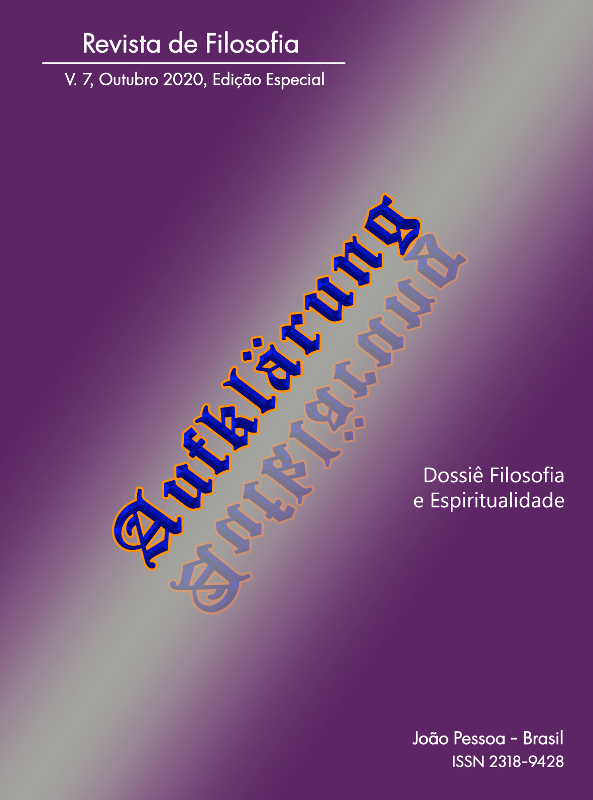Totalitarismo, gnosticismo e pneumopatologia: um estudo a partir da filosofia de Eric Voegelin
DOI:
https://doi.org/10.18012/arf.v7iesp.56750Keywords:
Gnosticism, Pneumopathology, TotalitarianismsAbstract
This article contains discussions about the analysis promoted by the German philosopher Eric Voegelin (1901-1985) about the factors that contributed to the insurrection of the totalitarian movements. From the Voegelinian point of view, the basis for the emergence and adherence to these movements must be sought not only in political-juridical forms and institutions, but in aspects associated with spiritual factors, such as modern secularism and the “state of mind” of citizens attracted by totalitarianisms. The problematic that permeates this work revolves around the following question: what conditions favored the advent of totalitarian movements? The hypothesis developed is based on the idea that Gnostic values, conceptions and ideals influenced the ideological foundations of totalitarian regimes and contributed to the “spiritual decay or disorder” of the individuals involved in these movements. This spiritual disorder is a kind of intellectual and ethical illness which Voegelin calls pneumopathology, a disease of the spirit. The reflections and discussions that underlie this company will be promoted through literature review, having as main references the works The New Science of Politics and Hitler and the Germans. The purpose of this paper is to understand the spiritual factors that eventually contributed to the rise of totalitarian regimes, focusing the analysis on the phenomenon of peneumopathology as one of the conditioning elements of adherence to the movements mentioned, by giving way to conditions that favored totalitarian ideological manipulation. The paper will be arranged as follows: the initial discussion will present the reflections concerning Gnosticism, aiming to highlight the influence of symbols, conceptions and ideas of the religions of immanentist creed on the insurgency of totalitarian movements; In the following section, there will be an exposition of the discussions dedicated to the characteristics of the “spiritual illness” that affected the individuals seduced by the totalitarian movements.
Downloads
References
ABBAGNANO, Nicola. Dicionário de Filosofia. Edição revisada e ampliada. Trad. Alfredo Bosi; Ivone Castilho Benedetti. São Paulo: Martins Fontes, 2007. 1014 p.
ADLER, Mortimer J.; DOREN, Charles Van. Como ler livros: o guia clássico para a leitura inteligente. São Paulo: É Realizações, 2010. 430 p.
ARISTÓTELES. Metafísica. Vol. II. São Paulo: Loyola, 2002. 577p.
FARÍAS, Victor. Heidegger e sua herança: o neonazismo, o neofascismo e o fundamentalismo islâmico. São Paulo: É Realizações, 2017. 262 p.
FAYE, Emmanuel. Heidegger: a introdução do nazismo na filosofia. São Paulo: É Realizações, 2015. 605 p.
FEDERECI, Michael P. Eric Voegelin: a restauração da ordem. Trad. Elpídio Mário Dantas Fonseca. São Paulo: É Realizações, 2011. 215 p.
FERGUSON, Sinclair B.; WRIGHT, David F. Novo Dicionário de Teologia. São Paulo: Hagnos, 2009. 1223 p.
LOBACZEWSKI, Andrew. Ponerologia: Psicopatas no poder. Campinas: Vide Editorial, 2014. 298p.
ORTEGA Y GASSET, José. O que é filosofia? Campinas: Vide Editorial, 2016. 291p.
PLATÃO. Teeteto. 3. ed. Lisboa: Fundação Calouste Gulbenkian, 2010. 322p.
RUSSELL, Bertrand. History of Westerns Philosophy. Traduzione italiana di Luca Pavolini: Storia della Filosofia Occidentale. Milano: TEA, 1991. 816p.
SANDOZ, Ellis. A Revolução Voegeliniana: uma introdução biográfica. Trad. Elpídio Mário Dantas Fonseca. São Paulo: É Realizações, 2010. 398 p.
VOEGELIN, Eric. A Nova Ciência da Política. 2ª ed. Trad. José Viegas Filho. Brasília: Editora Universidade de Brasília, 1982. 187 p.
VOEGELIN, Eric. Anamnese. Da teoria da história e da política. Trad. Elpídio Mário Dantas Fonseca. São Paulo: É Realizações, 2009a. 543 p.
VOEGELIN, Eric. As Religiões Políticas. Trad. Teresa Marques da Silva. Lisboa: Vega Limitada, 2002. 97 p.
VOEGELIN, Eric. Ciencia, Política y Gnosis. In: ______. El asesinato de Dios y otros escritos políticos. Buenos Aires: Hydra, 2009b. p. 69-123.
VOEGELIN, Eric. Hitler e os Alemães. Trad. Elpídio Mário Dantas Fonseca. São Paulo: É Realizações, 2007a. 367 p.
VOEGELIN, Eric. Reflexões Autobiográficas. Trad. Maria Inês de Carvalho. São Paulo: É Realizações, 2007b. 190 p.
WEBB, Eugene. Eric Voegelin: philosopher of history. Washington: University Of Washington Press, 2014 (Kindle).
Additional Files
Published
How to Cite
Issue
Section
License
Journal general policy
1.This journal works under a Creative Commons License aplied to online journals. That icence can be read in the following link: Creative Commons Attribution 4.0 International (CC BY 4.0).
2.Accordingly to this License, a)the journal declares that authors hold the copyright of their articles without restrictions, and they can archieve them as post-print elsewhere. b)the journal allow the author(s) to retain publishing rights without restrictions.
Metadata Policy for information describing items in the repository
1. Anyone may access the metadata free of charge at anytime.
2.The metadata may be re-used in any medium without prior permission, even commercial purposes provided the OAI Identifier or a link to the original metadata record are given, under the terms of a CC BY license refered for the Journal.







































